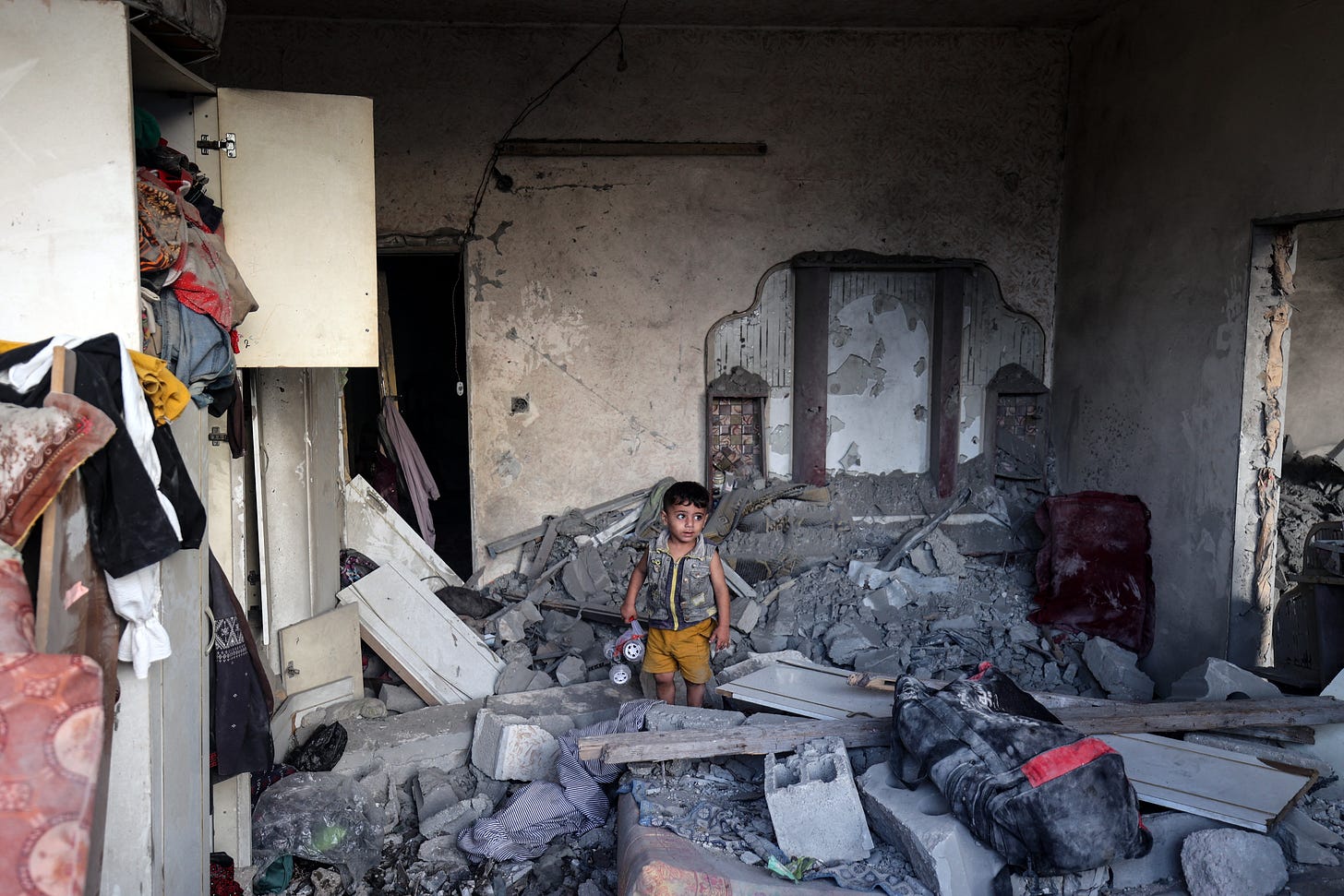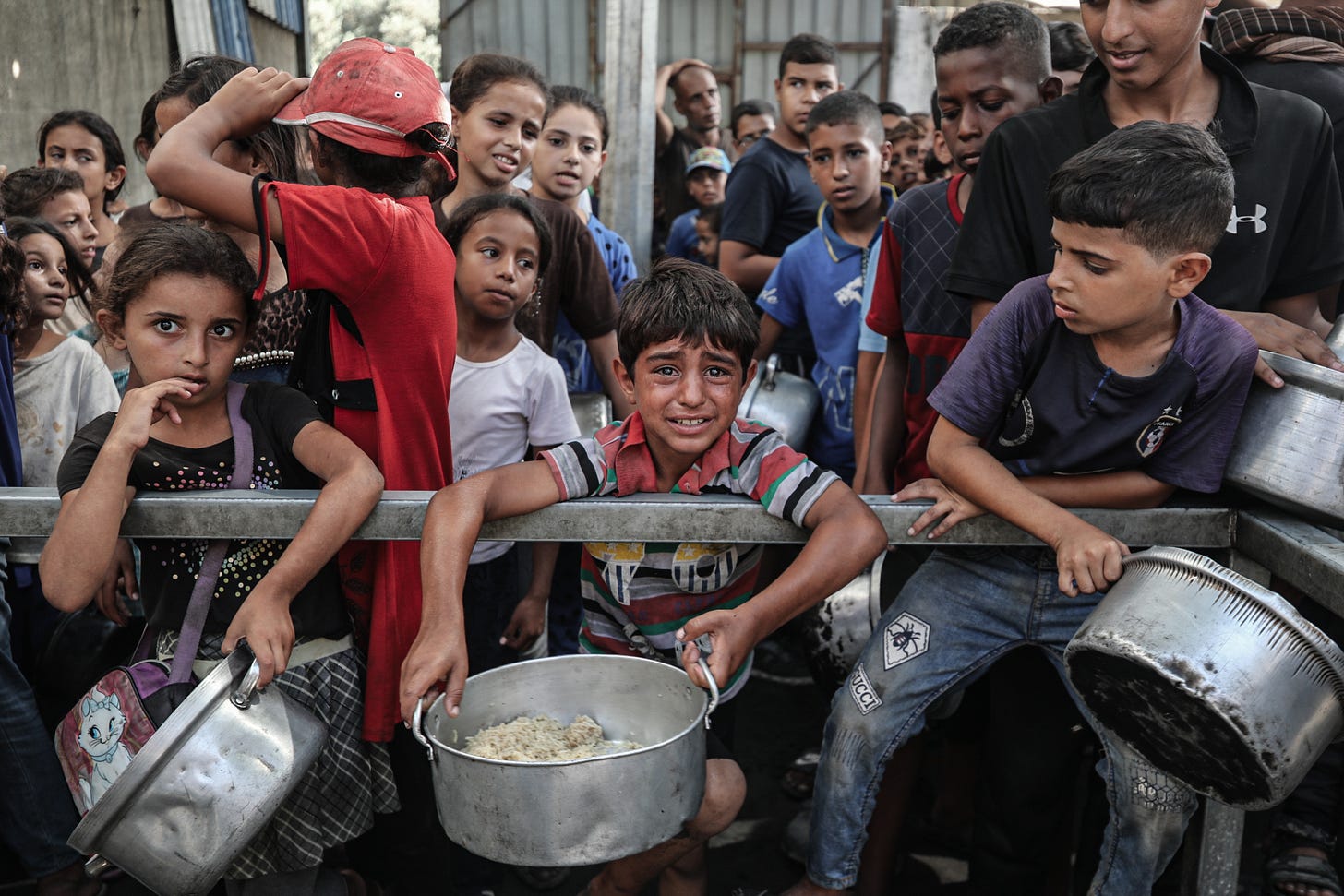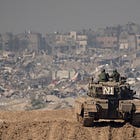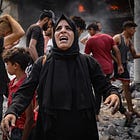Doctor Who Served in Gaza Reads the ‘Will’ of a 10-Year-Old Girl Who Was Killed
Dr. Thaer Ahmad gives an emotional statement at a high-level UN event about Israel's war on children in Gaza.
Dr. Thaer Ahmad delivered the following statement during the high-level “Call to Action for Palestinian Children in the West Bank and Gaza” event during the UN General Assembly last week.
Let us consider the totality of what has transpired over the past two years.
I do not want to dive into the statistics. I do not want to over-intellectualize what is happening in Palestine.
The only way to grasp and understand the reality of what is happening on the ground is to view it through the eyes, experiences, and voices of the Palestinians who are suffering.
Let me be clear. There is a war on children. There is a policy to eliminate the ability for Palestinian children to flourish, to prosper, to grow, to thrive.
Every day in Gaza, in the West Bank, we watch the next generation of Palestinians have their future stripped away from them.
If they miraculously survive, they do so beaten, wounded, tortured, and traumatized – and deprived of their parents, their educators, their healers like my colleagues, the abducted Dr. Hussam Abu Safiya, or the murdered Dr. Thabat Salim.

As a physician, the only way I know how to illustrate the depth of desperation is to do it through cases and stories that we saw.
Rasha and Ahmed were born one year apart. Rasha was 10, Ahmed was 11. Their mother was a PhD, and they hoped one day they would follow in her footsteps.
On June 10, the Israelis dropped two missiles on their homes. They were able to pull them from beneath the rubble. No warning, no evacuation or displacement order. Just indiscriminate bombing.
At that moment, Rasha, so traumatized, decided that she would write her own will. A Palestinian child writing their will.
Three months later, on September 30, another bomb found Rasha, this time killing her. When her family brought her to one of the hospitals, they laid her and Ahmed on the cold floor – there were no beds left. Like so many kids I saw, she could even be taken to the morgue. It was already full.
I’d like to take a moment to read her will.
“My will: If I become a martyr or pass away, please do not cry for me, because your tears cause me pain. I hope my clothes will be given to those in need, and my accessories should be shared between Rahaf, Sara, Lana, and Betur. My monthly allowance of 50 shekels: 25 to Rahaf, 25 to Ahmed. My stories and notebooks to Rahaf. My toys to Betur. And please do not yell at my brother Ahmed. Please follow these wishes.”
Recently, we saw a video of over 1,000 orphans in Gaza, celebrating their graduation, which was one of the most miserable of celebrations. Imagine those children looking out into the crowd, hoping to see their mother carrying a phone videotaping them, or their father smiling proudly at them. Instead, they found no one there.
What will become of those children? Who will cheer them on as they reach different milestones? Who will hug them when they experience disappointment and failure?
I can go on and share with you the stories of children who’ve become permanently disfigured and disabled from the bombs dropping, and the tanks shelling, and the drones striking, and the ground troops invading.
The children who will never be able to get the prosthesis that they need because the trucks are stuck outside, unable to reach them, so they’ll never have independent lives, always dependent on others.
How about the hungry and starving children every day hoping to find meat at the soup kitchens, only to be met with hundreds of other children, hoping that they’d be able to find some pot of rice?

Deprived of school and education, the children of Palestine were thirsty to gain more knowledge and boasting world-class literacy rates. Now these schools are shelters.
And I remember one day seeing a father angry and heartbroken. In the middle of the emergency department at Nasser, he was furious that his son had gone looking for food, in Rafah, and his son had lost his life in the process. And he said something that I will never forget. He said, “Wallahi mish msamhak” to his son, to the lifeless body of his son, “I will never forgive you for doing this to me,” for being so heartbroken, seeing his son there on the floor of the emergency department.
We see thousands of Palestinian children on an evacuation list, hoping that they would get the emergency medical care that they need to survive, we see every day kids off of those lists, their names being scratched off because they are no longer with us.
Like Jude, who was 15 months old, whose mother was begging us to get her the cancer treatment that she needed for her leukemia, only to find a message from her mother one day saying, “Jude is no longer with us. She is with her lord now.”
Time will not permit me to describe to you all of the empty water canisters I saw barefoot children carrying in Gaza looking for clean water.
Time will not permit me to tell you about the makeshift tents that would not help the people in the cold winters or protect them from the hot sun in the summers.
Time will not permit for me to tell you how Gaza has become a breeding ground for infections because of the lack of medications and sanitary supplies.
So I will end with this: If anything I’ve said today has resonated with you, moved you, then please let us work together to protect and preserve our children.
The only way is through accountability. Not just condemning the fact that the baby formula that was in my bag when I was denied entry into Gaza this last summer never reached the children it was meant to help.
Not just saying that children need food, and just watching the food rot on the trucks that are denied access.
Not just demonstrating outrage at the children who are dying from malnutrition.
And not offering condolences for all of the slain healthcare workers in the last two years that we’ve seen.
Let’s not pretend that in the future it will be enough to say that we were against the genocide and ethnic cleansing.
Let us understand that this is a call to action, and today the call to action is for Palestine and our children.
But if we do not heed this call, tomorrow it will be for the children of the world.
Dr. Thaer Ahmad is a Palestinian-American emergency room physician from Chicago. He traveled to Gaza in 2024 with humanitarian aid organizations and worked at Nasser Hospital in Khan Younis and Al-Aqsa Hospital in Deir al-Balah.
The views expressed in this article are the author’s own and do not necessarily reflect those of Zeteo.
Check out more of Zeteo’s coverage of Israel’s genocidal war:






Dr Ahmad’s speech was truly heartbreaking. I pray with everything in me that people will heed his call to action and protest your government, bombard them with emails and petitions, Boycott Israel! Look at what Boycotting Disney did for Kimmel, let’s put that same energy into helping children.
Thank you Dr.Ahmad.